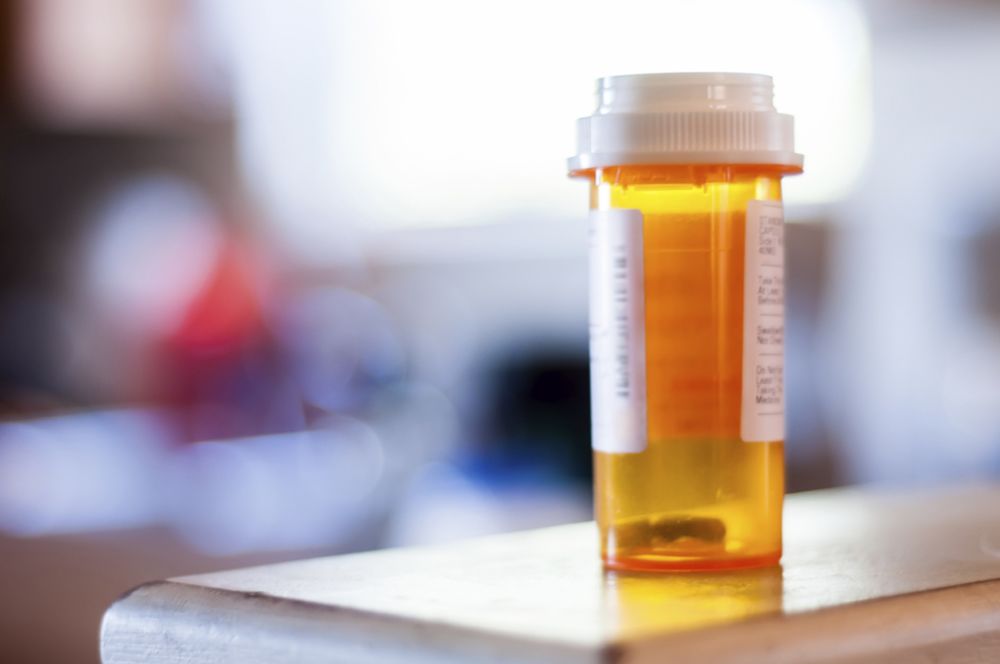Can Medications Affect Gum Health?
 For many people, medications are necessary to keep them healthy and manage illness and other conditions, but certain side effects can create other health problems, specifically poor gum health. Fortunately, restorative dentistry treatments are available to address dental damage and gum health problems associated with dry mouth to improve the health and beauty of the smile. Let's take a closer look at the link between poor gum health and medications and how to protect your smile in this overview from South Ogden, UT dentist Patrick Tanner.
For many people, medications are necessary to keep them healthy and manage illness and other conditions, but certain side effects can create other health problems, specifically poor gum health. Fortunately, restorative dentistry treatments are available to address dental damage and gum health problems associated with dry mouth to improve the health and beauty of the smile. Let's take a closer look at the link between poor gum health and medications and how to protect your smile in this overview from South Ogden, UT dentist Patrick Tanner.
Medications and Poor Gum Health
One of the most common side effects that can lead to poor gum health is dry mouth. Dry mouth occurs when insufficient saliva is produced. A lack of saliva can become a problem because it contributes to bacteria and plaque buildup within the mouth. This is because saliva helps wash away food debris and bacteria.
When insufficient saliva is produced, increased amounts of bacteria and food debris are left within the mouth, leading to plaque buildup along the gum line. As plaque collects along the gum line, bacteria may begin to damage the gums, leading to gum disease, gum recession, and other oral health problems.
Which Medications Are Most Likely to Lead to Poor Gum Health?
Not all medications are associated with poor gum health and those that are may not list poor gum health as a side effect. However, dry mouth may be listed as a side effect, which is a good indication that poor gum health may follow. Some common medications that are associated with dry mouth and poor gum health include:
- Antacids
- Antihistamines
- Antidepressants
- Some birth control pills
- Corticosteroids
- Beta blockers and other high blood pressure medications
- Angina medications for chest pain
- Non-steroidal anti-inflammatory drugs (NSAIDs)
- Anticonvulsant seizure medications
Preventing Poor Gum Health
For those who experience gum health problems related to medications, it's important to bring such issues to your physician and dentist's attention and never skip or change medications without physician approval.
In some cases, a physician may be able to prescribe alternative medications or change dosages to help prevent side effects, like dry mouth, that can lead to poor gum health. If medications stay the same, taking a proactive approach to dental care can help stave off oral health problems. Follow these tips to prevent poor gum health and protect your smile.
- Practice good oral hygiene: Good oral hygiene is essential for a healthy smile, especially when faced with dry mouth. As part of a good oral hygiene routine, it is important to brush at least twice a day for two minutes each and floss at least once a day.
- Brush after meals: For those with dry mouth, brushing after meals is recommended to make up for a lack of saliva and prevent bacteria and food debris from building up in the mouth.
- Rinse with water after meals: It's not always possible to brush after meals, but rinsing with water generally is. Rinsing with water after eating can remove food debris and wash away some bacteria when saliva is lacking.
- Chew sugar-free gum: Chewing sugar-free gum can help stimulate saliva production and help those with dry mouth reduce their risk of gum health problems.
- Schedule regular dental exams and cleanings: Scheduling a dental exam and cleaning every six months is important for everyone, but especially those with dry mouth. Regular dental exams and cleanings help catch problems early and protect oral health.
Discover Your Treatment Options
If you are experiencing issues with your gum health and would like to learn more about your treatment options, we invite you to schedule a consultation with Dr. Tanner at your earliest convenience.


